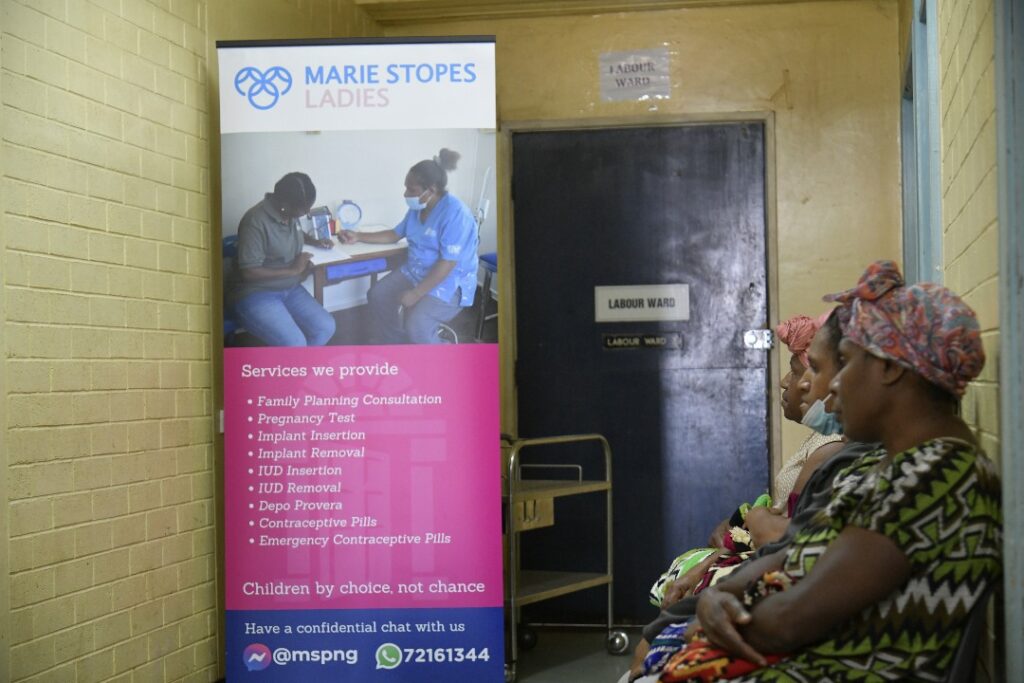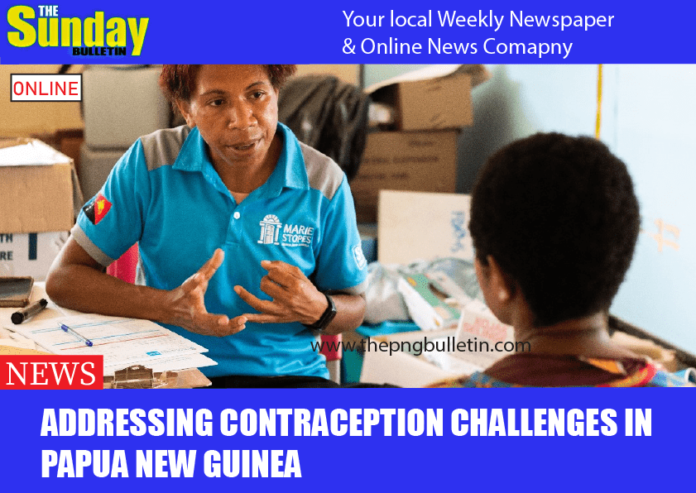IN recognition of World Contraception Day (WCD), Marie Stopes Papua New Guinea (MSPNG) reflects on both the progress and ongoing challenges surrounding contraception in PNG.
WCD, observed globally on September 26, raises awareness about contraception and empowers individuals to make informed reproductive health decisions.
Contraception refers to a variety of methods used to prevent pregnancy, including barrier methods, hormonal options, intrauterine devices (IUDs), permanent solutions, and emergency contraception. It allows individuals and couples to make informed choices about their reproductive health and family planning, granting everyone the fundamental right to determine what best suits their personal needs and circumstances.

However, in PNG, awareness, access, and acceptance of contraceptive methods remain significant public health challenges. Cultural, religious, and geographic barriers continue to impede family planning services, resulting in low contraceptive use and a high unmet need.
According to the 2016-2018 PNG Demographic and Health Survey (DHS), only 37 percent of married women use modern contraceptives, while the unmet need for family planning stands at 30%. Geographic isolation, myths, misconceptions, and limited healthcare access are key factors contributing to these barriers.
Contraception is more than just a health issue; it is also crucial for socio-economic development. Access to contraception empowers women and girls, particularly in low- and middle-income countries like PNG, to control their fertility, prevent unintended pregnancies, and delay childbirth. This enables them to pursue education and participate in the workforce, thereby contributing to national development.
In countries with high fertility rates like PNG, contraception also helps prevent closely spaced pregnancies, which are linked to increased maternal mortality. With PNG’s maternal mortality rate at 215 deaths per 100,000 live births, the need for expanded family planning services is urgent.
A major obstacle to contraceptive access in PNG is the widespread misinformation surrounding modern contraceptives, particularly in rural areas. Many women fear modern contraceptives due to myths linking them to infertility or serious health risks like cancer.
Additionally, the lack of comprehensive sexual health education prevents broader acceptance of contraceptives. For young women and adolescents, stigma around contraceptive use contributes to high rates of teenage pregnancy, further limiting their educational and economic opportunities and perpetuating cycles of poverty.
Despite these challenges, national policies such as the National Family Planning Policy, Sexual and Reproductive Health Policy, Youth and Adolescent Health Policy, and National Population Policy aim to address family planning and reproductive health gaps. These policies prioritize expanding access to modern contraceptives, reducing teenage pregnancies, and promoting comprehensive sexual education.
Since 2006, MSPNG has been a key player in improving access to reproductive health services, particularly in remote areas. MSPNG continues to support the Government of PNG’s national health goals by providing accessible contraceptive services and family planning education. Our efforts align with the United Nations’ Sustainable Development Goals (SDGs), specifically SDG 3 (Good Health and Well-being) and SDG 5 (Gender Equality), and contribute to the national government’s Medium Term Development Plan IV (MTDP IV).
Looking ahead, it is essential to increase investment in public health infrastructure, expand educational programs, and encourage greater involvement of men, traditional leaders, and church and women leaders in family planning discussions. For PNG to fully realize the benefits of contraception, multi-sectoral efforts must reduce cultural stigma, increase access to modern contraceptives, and ensure that women and girls have the necessary information and resources to make informed reproductive health decisions.
Addressing these challenges will not only improve health outcomes and promote gender equality but also drive sustainable economic development. Together, we can ensure no woman or girl is left behind as we work toward a healthier, more prosperous future for all.

